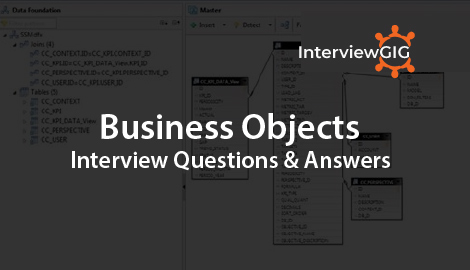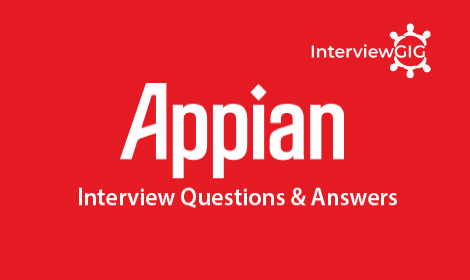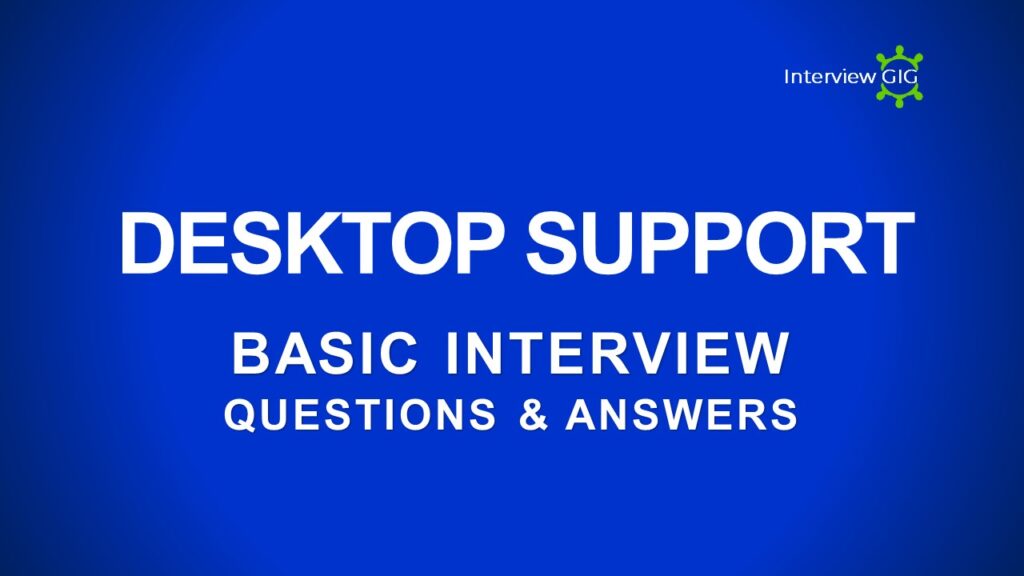Please describe yourself, your background briefly?
Actually, this is a typical job interview question. You can face this question not only in a project manager interview, but also in any job interview.
Consider this question as a self-promotion opportunity. Because, you will be telling about your background, your education, work experience and projects you have completed. If you are a new graduate, you can tell about your university projects. If you are an experienced professional, job interviewer will look for the keywords in your background that will match with the requirements of the job.
For instance, if you are a 5+ years of professional looking for a project manager position, you should not start from your primary school when answering this project manager interview question. Briefly, describe your place of birth, where you grew up and your university education. These should not be more than two or three sentences. Then, you should highlight the critical points in your background that is relevant with the position you applied for.
For instance, let’s consider that a software analyst working in a software vendor has applied to a project manager position. He has not any project management experience. However, he wants to get this project manager position and the employer invited him to the project manager interview.
What are the most important qualities of a project manager?
- Excellent Communicator
- Enthusiastic
- Cool and Collected
- Delegator
- Team-Building Skills
- Problem Solving Skills
- Inspires a Shared Vision
- Integrity
What are the various kinds of activities in a project?
There are several sets of activities that can be identified in initiating a project and it is required to plan the the activities to achieve certain goals. Proper execution of these activities will help getting projects done. For systematic closure of project, final set of activities are required
What is the most important thing for a project manager?
One must know the priorities of a project manager and know what a manager does. This will help in demonstrating a good cultural fit for your team. The most important things for a project manager is to be flexible and adapt processes.
What you want to work on in your project?
Well, there are some things we are not comfortable within the project, but project managers work on all the projects that they are assigned. Here the interviewer notices that the candidate is ready to take up the responsibility of any kind of project.
What according to you is the most important duty of a project manager?
The answer to this question shows how they prioritize their work. Their answer will also indicate their proficiency and understand their ability to understand the work process.
As a project manager what was the most difficult ethical decision?
The answer to this question should indicate candidate’s knowledge and awareness of PMI Code of Ethics, and also their general approach towards their work. The answer to this question also helps the interviewer to judge how the candidate will fit into your business culture.
Tell us about your experience in managing different projects. How can this contribute to our position?
It is important to carefully structure your interview answer because this is a multi-layered and fairly complex question. Start by explaining how you are going to answer the question. This keeps your answer on track and to the point.
“I will begin by giving you a short description of my last three projects. I will detail the skills and abilities I developed as a result of each project and demonstrate the value of these skills to this position.”
You can then go on to provide a brief but concise summary of each project.
“I was the project manager for the XYZ project and this involved …”
Then describe the skills you acquired during the project.
“I encountered a number of difficulties on this project that required an innovative approach. I used group problem solving sessions as one of these approaches. This worked well because it helped each team member to clarify their particular project role and responsibility and we were able to develop plans and realistic schedules that the whole project team contributed to …”
Demonstrate how these skills will benefit the job and company.
“Projects now are faced with tighter budgets and fewer resources. This approach maximizes the available resources and keeps everyone focused and motivated for the duration of the project.”
When every task is urgent, how do you determine what to prioritize?
- With all the intricate details and moving parts that go into a project, it’s easy to get bogged down and overwhelmed. But a strong project manager possesses discerning sifting abilities, enabling her to identify the most important components of a project and filter out the static noise.
- Deciding which areas of a project require the most resources is a tough call, especially when every single component seems like it should be the #1 priority. Your candidate should be able to comfortably convert a tangled web of responsibilities into an organized hierarchy of action items and follow through on all the tasks.
Have you worked on a project in our field before?
In addition to the extensive list of organization, communication, and leadership skills a good candidate must possess, a project manager also needs to have some solid expertise in your field. This is more relevant for external hires, but it’s important to ensure that internal hires have sufficient knowledge of the project’s needs as well.
Generic skills and experience may seem adequate at first, but down the line they could lead to problematic gaps in understanding and contribute to major missteps. Make sure that your candidate has more than a basic understanding of your company and field. Otherwise, they could fall behind and steer the project in the wrong direction.
What are the causes of project failure?
You should be able to talk about common mistakes made by project managers, like a lack of direction, flexibility, or communication.
If this isn’t a sentiment you agree with, then you’re probably not going to be a good fit for this role.
What are your problem-solving techniques?
Here, interviewers are looking for you to talk about concrete methodologies like the deboned thinking hats and fishbone diagrams that systematize your problem-solving process.
what are the advantages of grouping projects under a program?
You should answer this question by talking about how a program ensures that all projects undertaken fall in line with an organization’s business strategies.
What makes for a good project manager?
Choosing the right person to manage the projects you’re coordinating is extremely important. List out skills like time management and decision-making that you’d look for in a project manager.
How would you explain project life cycle?
There are several phases like start phase, organizing and preparing phase, in a project which defines the range of activities required to carry out the project work. The actual execution part of the project is the carrying out phase. These various phases in a project are defined as milestones etc.
Do you have knowledge of a project management software? What tools have you worked with?
Project management software is becoming a big part of project management industry. The new frameworks like Kanban, Agile etc. are must for all managers. Have a good knowledge of project management software that was used and explain how skill set can translate over to the new position.
Did you give any suggestion to implement in this field?
A person may have several ideas and suggestions, but it is important for those ideas to be implemented. The ideas should have a good ending. There should be an example that shows how the idea was implemented and how it became a success.
How do you handle missed deadlines?
Another important part of a project is missing on a deadline. When it comes to deadlines, the ears are waiting to listen the ways that person used to allow a faster completion when deadline is revolving around.
What is your view on PMP?
As a project manager, one has to face the uncertainties throughout the time. It is essential for the manager to identify risks and communicate appropriately. This question will show you their priorities and how determined a project manager is. Besides this, you will know whether they are perfect fit for your team.
Why did you choose PMP Certification?
It demonstrates your knowledge and dedication to constantly and successfully be a project manager. It’s worth probing the skills of applicants. Find out the last project they handled with creative thinking.
What is the difference between a project, a program and a portfolio?
Projects are undertaken for a specific or a related set of purposes. A program is a set of projects managed in a coordinated manner in order to achieve different parts of an overall goal. A portfolio encompasses a set of different programs and other portfolios that help the organization achieve a high-level business purpose.
What do you do as a project manager is you want to do plan A and everyone else in your team wants to do plan B?
There might be difference in opinion in a team due to different perspectives of everyone. The answer expected should be, “As a project manager, one should always believe in their team and so choose the option B but surely with proper explanation from them as in how the things will run in a better way with option B.
How do you motivate project team?
Project team motivation is crucial for the success of a project. If a project team is not motivated, it will be impossible to reach project objectives. Or, even if you reach your project objectives, project quality will suffer.
This project manager interview question is critical to get insights about the people management skills of the candidate.
Following is a sample answer for this question.”
After I create the project baseline, I mark the milestones of the project. Then, I send this project plan to all project team members. Whenever we pass a milestone successfully, I organize an event to celebrate this. This can be a picnic, a weekend trip or a dinner depending on the project budget or amount of the allowance provided by the company for these celebrations.
Additionally, I try to celebrate birthday of each project team member. I organize a 30 minutes break for celebration and invite all project team members to this break.
Moreover, if a project team member over performed during the project, I send a special email to his manager to appreciate his efforts. I know that these kinds of emails will be important for the line managers of project team members when they are doing annual performance evaluation of the employees. My appreciations will bring additional points and opportunities for promotion or bonuses for the project team member respectively.
You managed the project work as per requirements. However, customer is not happy with the result and does not accept the product. How would you convince the customer?
This is a very common and tough to deal situation in project management. Although you delivered the project scope as you agreed with the customer in the beginning of the project, customer may not accept the product at the end of the project.
This project manager interview question assesses your convincing and justification skills.
In case you receive this kind of question, you have to demonstrate the agreed scope and how your end product fits with the agreed scope. Note that, final stop of a disagreement like this is courts. However, never mention this during your project manager interview. Because, you have to fix conflicts with communication and companies do not wish to go courts in these cases since it will take years to reach a conclusion.
Additional Job Interview Questions to Ask:
- How do you group projects into a program?
- Discuss how you deal with stakeholders?
- How do you deal with ethical dilemmas?
- Do you have any certifications?
- How do you handle an under-performing team member?
- Have you ever failed in a project? do you have any experience of handling failures?
- What was the biggest or most challenging project you managed?
- How do you monitor projects whether it is going on track?
- Can you tell me an example of how you communicated a failure to your team, manager and customer?
- Do you have international project team management experience?
- Why should we hire you?
- How do you handle office politics?
- What do you spend the most time doing each day?
- Do you prefer working on a single project or multiple projects at the same time?
- Where do you see yourself in five years?
- What is your salary expectation?
- Why do want join Here?
- Are you willing to relocate?
- Do you any questions with us?
- What is your current salary and compensation package?





